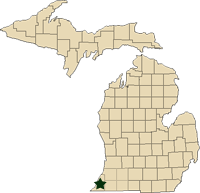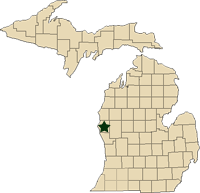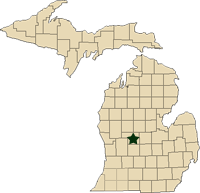Regional reports on Michigan vegetables – September 21, 2011
MSU Extension educators’ pest and vegetable updates for Michigan.
This week’s regional reports:
- Southwest Michigan – Ron Goldy
- West Central Michigan – Norm Myers
- Central Michigan - Fred Springborn
Southwest Michigan – Ron Goldy, Michigan State University Extension
|
Weather
Temperatures have averaged near or slightly below normal with highs from 59 to 83°F and lows from 38 to 60°F. The area has received around 0.8 inches of rain since September 1. Conditions have been good for harvest and other field activities.
Reports
Most harvest is winding down and growers are beginning to remove plastic and work up fields. Late harvest continues on cucumbers, peppers, watermelon, squash and tomatoes. Harvest of pumpkins and fall squash is well underway.
Aphid populations have increased in response to dry weather, resulting in some sticky, shiny pumpkins,watermelon and squash. A corresponding increase in virus diseases can also be observed. Broad mite symptoms on peppers have also been observed.
The pumpkin crop appears less than normal, probably around 70 percent of a crop on many fields. A lot depends on when the field was planted and when it came into flower. Those fields flowering in July seem to be affected the most. This is most likely a response to the hot temperatures reducing the number of female flowers and bee activity.
There was a confirmed report of spotted wing Drosophila (SWD) in Berrien County the week of September 5. The catch came in a pepper and tomato planting. Further trapping was not able to catch additional SWD at the same or other sites.
West Central Michigan – Norm Myers, Michigan State University Extension
|
Oceana County received some rain on Sunday night and Monday morning (September 18-19). That was the first significant rain in about two weeks. We did have some scattered light frost the mornings of September 15 and 16, but nothing very damaging to vegetable crops.
German guests at the Summer Research Tour on September 6 pointed out an infestation of European asparagus aphids that had gone undetected up to that point. After consulting with entomologists in other asparagus-growing states, MSU entomologist Zsofia Szendrei recommended treatments in fields where this aphid could be detected. Rye cover crop seeded earlier would certainly benefit from more rain.
Harvest of winter squash (Dickerson Select, Buckskins, NK 530 and Butternut) for processing is in full swing in our area and, fortunately, temperatures have remained warm enough to protect the quality of squash still in the field. Harvest of Jack O’Lantern pumpkins is also well along with demand reported to be good.
Harvest of processing broccoli continues, but should finish up in the next week or so.
The harvest of the first processing carrots has begun. Growers are concentrating on early varieties in early-planted fields. The warm summer may limit carrot yields to, at best, average levels. Growers continue to irrigate fields that are scheduled for later harvest.
I stopped checking my sweet corn insect traps two weeks ago when harvest of sweet corn and late-planted snap beans finished.
Lack of labor is still a hot topic as late, labor-intensive vegetable crops such a processing broccoli and Jack O’Lantern pumpkins compete with apple harvest for the limited amount of labor available.
Central Michigan - Fred Springborn, Michigan State University Extension
|
Weather
Scattered light frost on Thursday, September 15, and Friday, September 16, was observed in Montcalm. Damage is predominantly in low-lying areas. High temperatures have been in the 60s to low 70s. Soil temperatures have been declining with the lower air temperatures; the lows in the last seven days have been in the low to mid-50s at a 2-inch depth. Rainfall has been sparse until Monday, September 19, when much of the area received 0.5 to 0.75 of an inch
Crop reports
Potato harvest continues with potatoes being both shipped directly from the field and now going into storage. The majority of fields have now been desiccated. All growers should be mindful of where potatoes are spilled or left in the field; if not cleaned up, those areas will need to be monitored for volunteers next spring.
Dry bean harvest is nearly complete in Montcalm with only a few fields immature enough to be injured by frost.
The majority of market gardens are winding down for fall. Most squash, pumpkin, and gourd patches have succumbed to powdery mildew. Downy mildew has claimed many of the last slicing cucumber patches.



 Print
Print Email
Email







